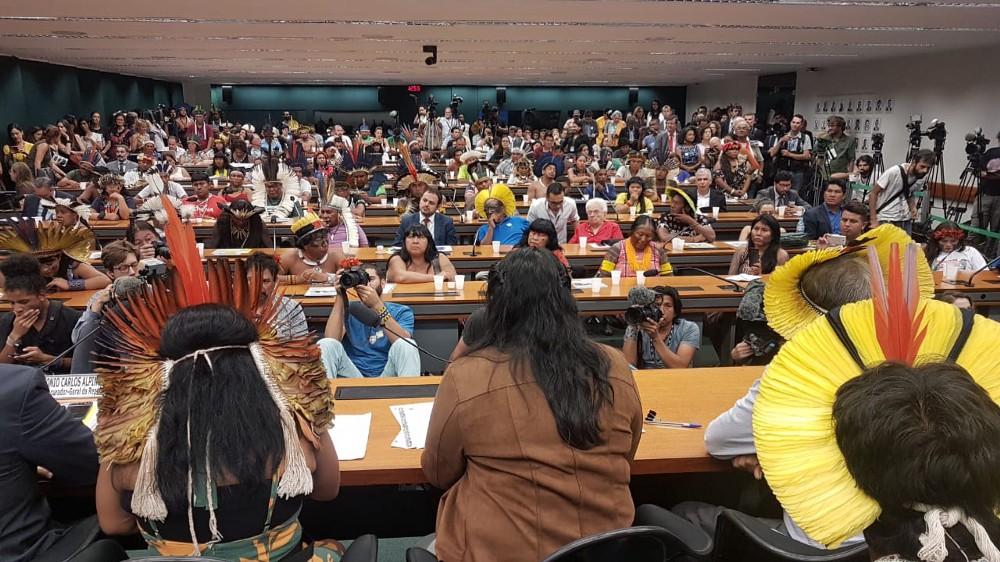
Indigenous groups and their allies across Brazil have been mobilizing amidst the Bolsonaro government’s latest brazen attempt to roll back indigenous rights and bolster the economic interests of powerful agribusinesses.
Brazil’s Supreme Court is currently debating a case referred to as Marco Temporal (or the “time frame” argument”) that could substantially reduce constitutionally protected indigenous territories. History is unfolding before our eyes, with little attention from the press and world leaders.
So today, we bring you a few of these critical voices from Ashoka Fellows and Young Changemakers as they reflect in real-time about the impact of this pending ruling on indigenous rights, sustainable land stewardship, and democracy writ-large. We were joined last week by Joênia Wapichana, Brazil’s first indigenous Congresswoman, Ednei Arapiun, indigenous leader from the Tapajós region, and Kátia Brasil, journalist and co-founder of Amazônia Real, who hosted the conversation. You can watch the full conversation in Portuguese or with English interpretation.
Here are a few highlights:
What is the Marco Temporal or “time frame” argument?
The Brazilian Federal Constitution, promulgated in 1988, is very clear in its protection of indigenous peoples’ “original rights to the lands they traditionally occupy.” In 2008, this constitutional right was put into question by farmers and rural politicians opposed to the official recognition of indigenous lands in Raposa Serra do Sol in Roraima (northern Brazil). They filed a lawsuit in the Federal Supreme Court (STF), and lost. But during the trial, the rapporteur of the case, Minister Carlos Ayres Britto, now retired, presented in his vote the thesis of the “time frame” argument, which has recently made a come back.
In this clip, Congresswoman Joênia Wapichana, who was representing indigenous groups in the Raposa Serra do Sol trial as their lawyer in 2008, explains the crux of their argument and why it is unconstitutional.
Indigenous communities are the guardians of the rainforest
Ednei Arapiun is an indigenous leader from the Cachoeira do Maró village in the Maró Indigenous Land in Baixo Tapajós (Amazon region). In his role as coordinator of the Tapajós Arapiuns Indigenous Council, he is expanding access to university for indigenous people. Since June, he has been involved in week-long mobilizations in Brasilia against the Marco Temporal, alongside thousands of other indigenous leaders and allies.
A lot is at stake for the Borari and Arapium people in his region. Since the mid-1990s, they have been the target of lawsuits fighting against the official recognition of their lands (still in process). This has set the stage for violent agrarian conflicts, and a growing food security crisis. Many timber and mining companies are already illegally operating on the land, giving Ednei and his community a clear sense of what is to come if the “time frame” argument were to pass in the Supreme Court. He is optimistic that it won’t and doing everything he can to make sure of it.
We all have a role to play
Whether in Brazil or not, there’s a lot we can each do to stand with Brazil’s indigenous people. Joênia Wapichana invited us all to raise awareness about the situation, speak to our elected officials, sign online petitions, center indigenous voices at the upcoming COP26, invest in indigenous initiatives and communities, and so much more.
For more follow Amazônia Real, Ednei Arapiun and Congresswoman Joênia Wapichana.